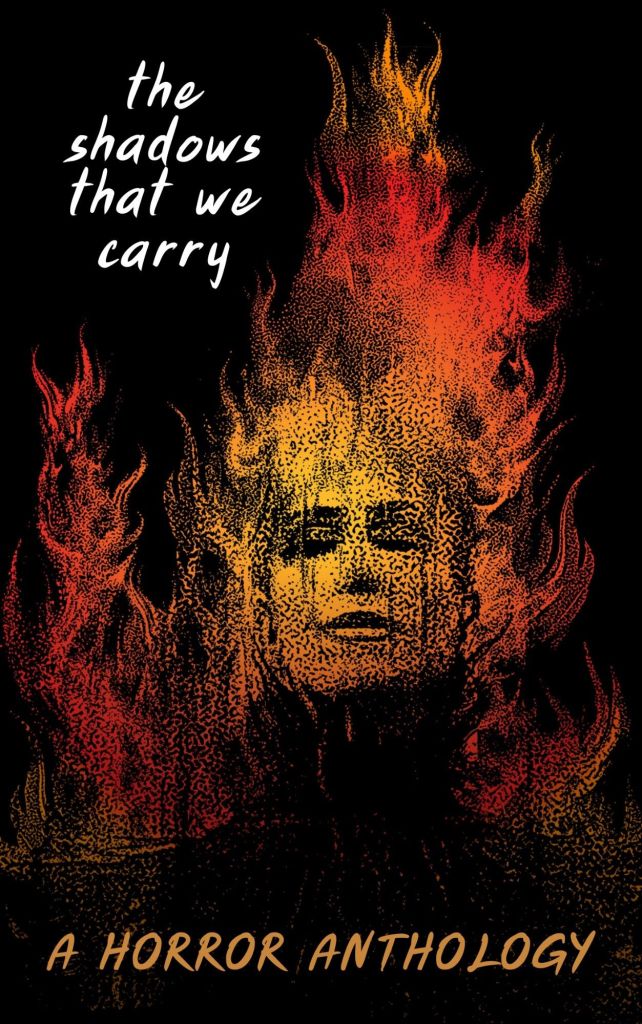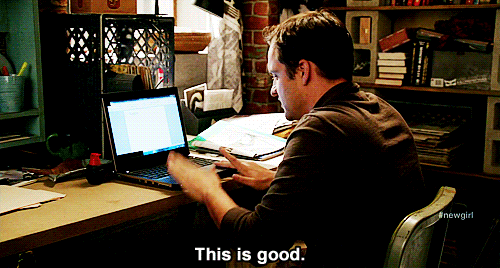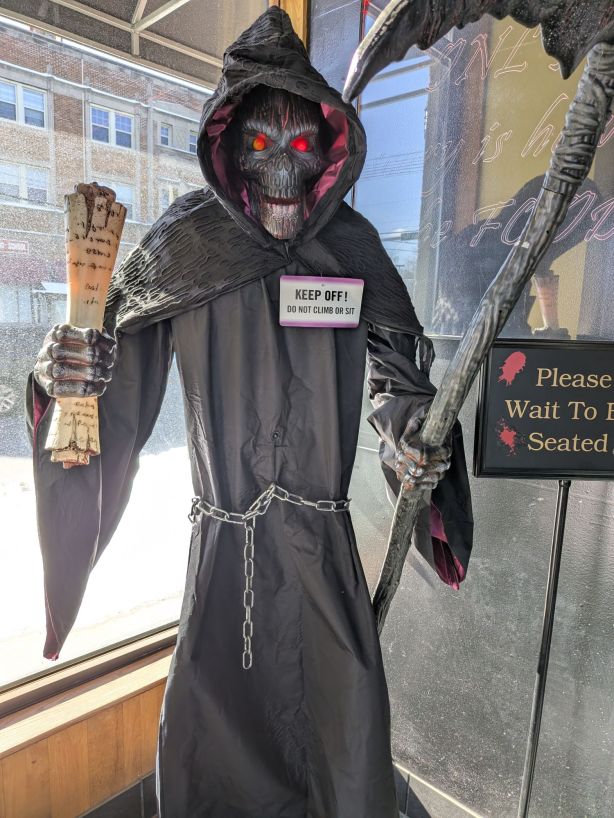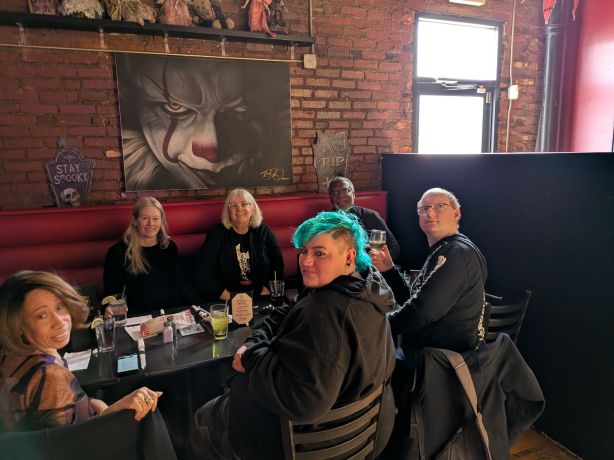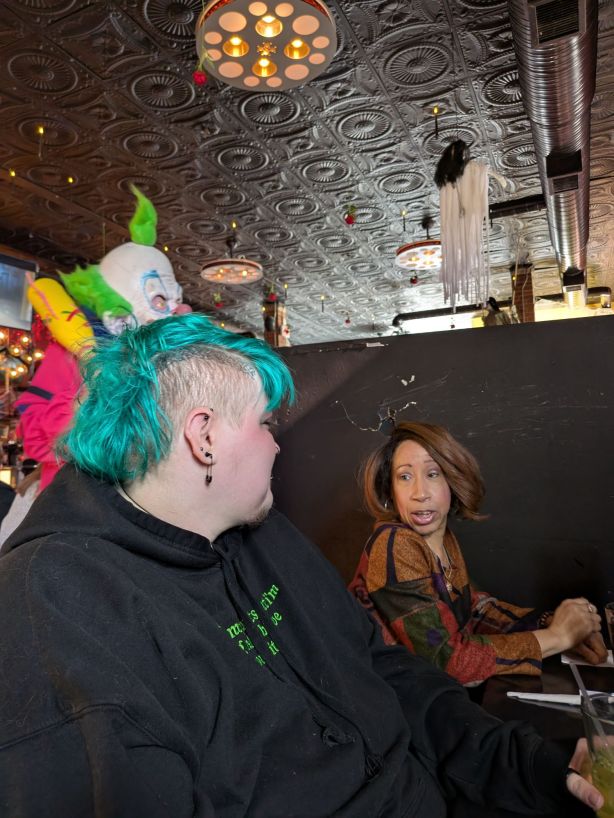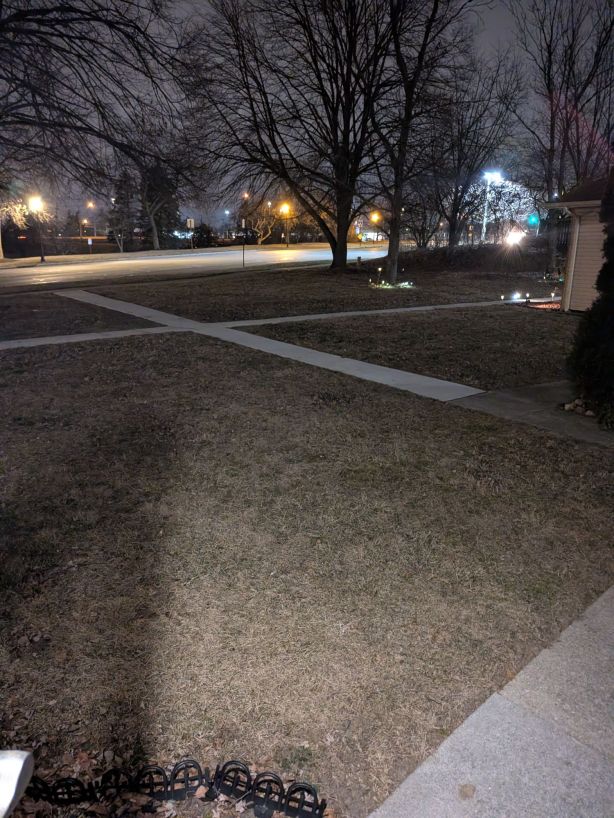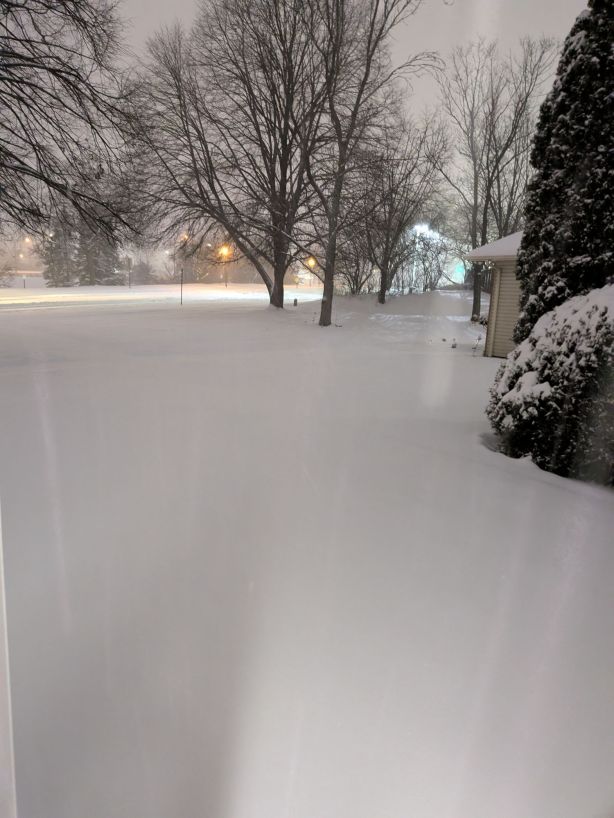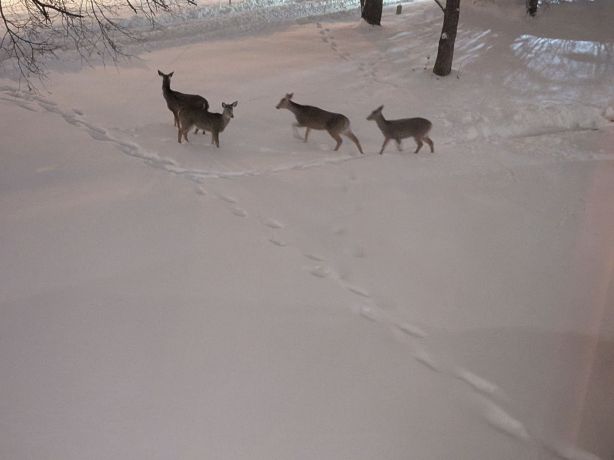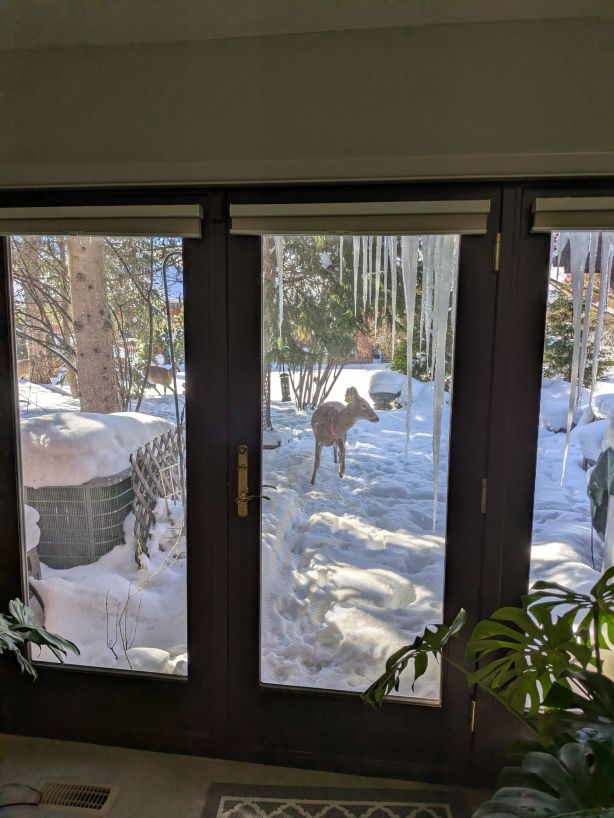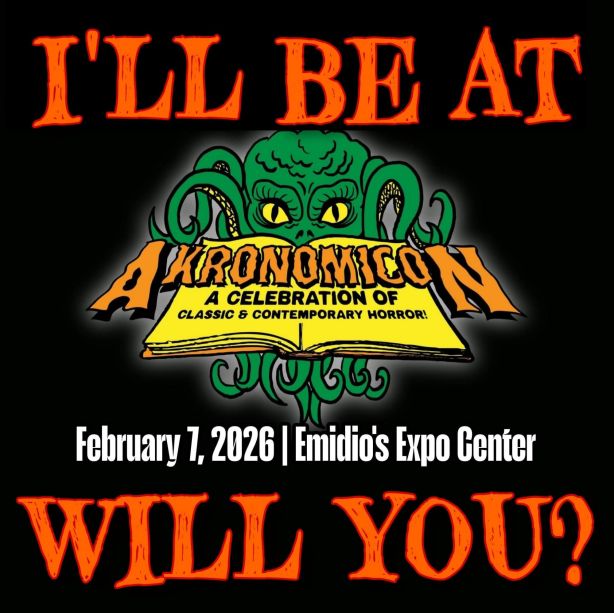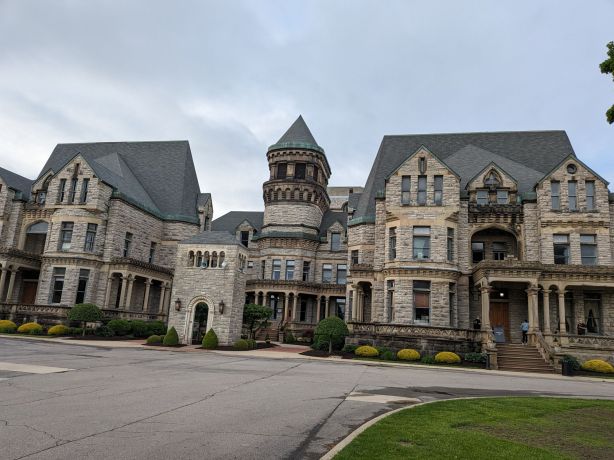Life has been weird lately. And I’m the one saying that!
I mean, first there’s the weather lately. If you didn’t know somehow, most of North America had a huge snow storm, known as Winter Storm Fern, that covered most of the US and parts of our neighbors in several feet of snow. It was so bad, we actually had to work from home for a couple of days (though I went into the office more days than most of my colleagues)! To illustrate, here’s what my yard looked like before the snow fell.
And here’s what it looked like the next morning.
Yikes! You can see why I didn’t go into work the following Monday. And how much trouble it was to shovel all that snow out of the driveway the night before I had to go back into work. And most of this snow is still there! It’s been shoveled away or to the side in some places, but there are still areas where the snow is still high and even the roads are blocked in areas. And with the temperature constantly below freezing and even into the negatives, I don’t see it going away any time soon.
And then there’s the deer. Last Sunday, the night before I was going to work from home, I looked out the window and saw a family of deer out in my yard. To say the least, I was astounded. I live near some wooded areas, and I’d seen deer walking around before, but this was the first time I’d seen them on my front lawn. I’m guessing that they were walking about because there were fewer vehicles out and they felt it was safe to wander.
So, naturally, I took some pics before they walked off.
So, on its own, that was cool. But then, just a couple days ago, on Sunday, I had an encounter with deer again! And this time, it was in Cleveland! Yeah, I was in Cleveland visiting friends and hanging with my dad and stepmom. And on Sunday, as I was about to leave for Columbus, I look out the window onto their back porch, and there was a deer!
Yeah, I was surprised. There it was, so close to me! Eating from my dad’s bird feeder! In the middle of the day! And three or four more showed up and then walked away. All of them tagged as part of some local tracking program (kid you not, one had a collar and earrings with the number 64 on them). Did not see that coming!
So, two Sundays in a row, I spot deer near where I’m staying. Is that a coincidence because both my home and my dad’s home are near wooded areas? Or is someone trying to send me a message? We’ll see if I spot any this coming Sunday. If I do, I’ll consider it a sign. Hopefully not from Nokotan, though.
Anime fans will get that joke and find it hilarious!
And there’s a whole bunch of other weird happening lately. Just today, I found out Columbus, where I live, is going to be hosting some soccer games for the Summer 2028 Olympics! Columbus, of all places! I know we have a couple of MLS stadiums, but I never would have thought we would be a host city or a satellite host city. Hell, I know we don’t have facilities for some of the events, so I never considered it a possibility.
Still, it looks like it’s happening. And given how many people are likely to show up in Columbus for the games, I think I will get out of town. Hopefully I will be writing full time by then and can leave town as needed. But if not, hopefully I’ll be able to take enough time off from work that I can get out of town for the duration of the games. As to where I’ll go, we’ll see where I am in life when I get there.
And that’s a good segue into another weird thing: my writing. It’s slowed down a bit lately.
I wish I knew why. I’m doing the self-care rituals I need to, and I’m leaving time in the evenings to write. But a lot of evenings I don’t have time to write. And when I do, it moves a lot more slowly than I would like. That might be partly because I’ve had to rewrite parts of the story I’m editing and finding the right way to tell the story takes time. Still, for a guy who’s trying to get a whole bunch of stories submitted for publication this year, this is frustrating.
Well, hopefully that changes soon. All my Tarot readings are showing February to be a good month for me, so perhaps things will speed up for me after Akronomicon this weekend. Maybe it’ll also warm up and the snow will melt, and I won’t get any malevolent messages from local deer populations. That would be nice!
Because let’s face it, life is already kind of mad, and I’m already an eccentric (and I have the stories to match). Making things even weirder in a way that just frustrates me and everyone else does nobody any favors!
One more thing, Followers of Fear: as I said, Akronomicon is this weekend. It’ll be at the Emidio Expo Center in Cuyahoga Falls, Ohio, just outside of Akron, on Saturday, February 7th, 2026. This is a fun day-long horror convention with celebrity guests, plenty of cool vendors, and this year, a film festival! If you can, please stop by. I will be signing books and doing Tarot readings, and would love to see you.
And if you can’t make it and would still like to support me, or if you’re in the mood for some creative horror stories, why not check out some of my books? From plant/human hybrids and strange gods to Mafia-hunting serial killers and carnivorous horses, I have something for everyone (including some free stuff). So, click the link below, and you’ll find all my books, as well as where to purchase them.
And if you like what you read, please leave a review online. Positive or negative, I love reader feedback, and it helps me and other readers out in the long run.
That’s all for now, my Followers of Fear. I’m off to bed so I have energy to function tomorrow. Until next time, good night and pleasant nightmares.
